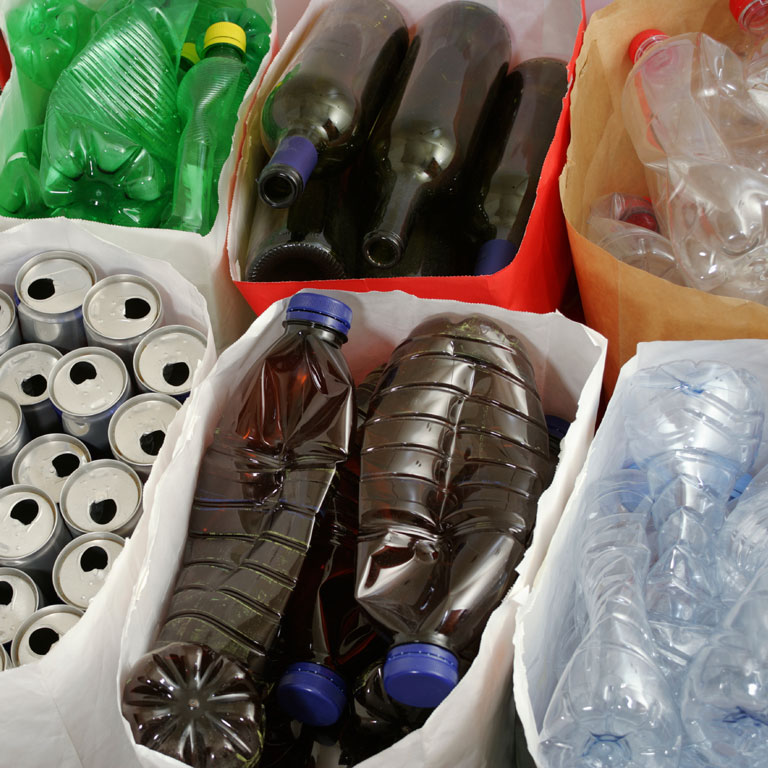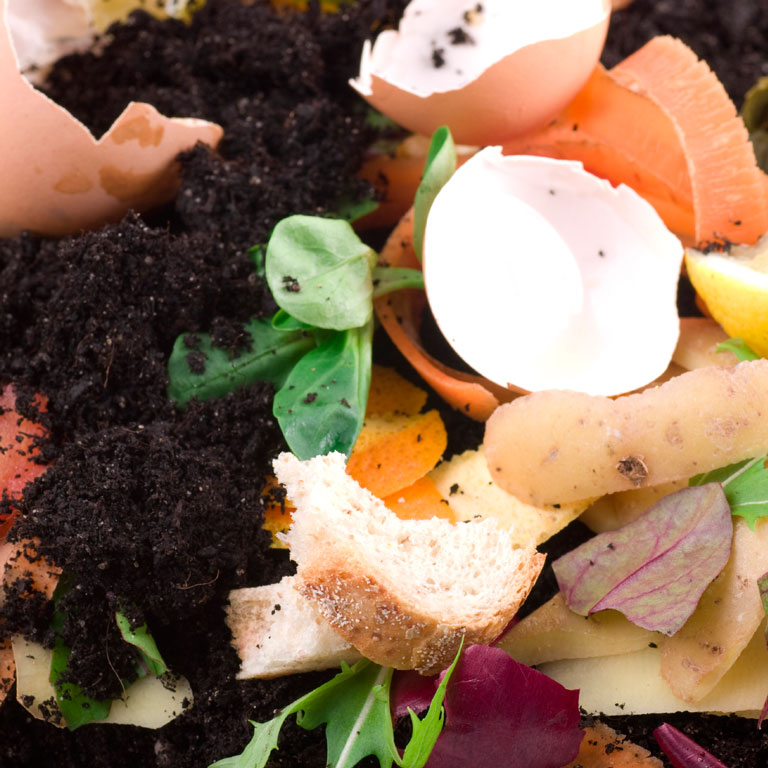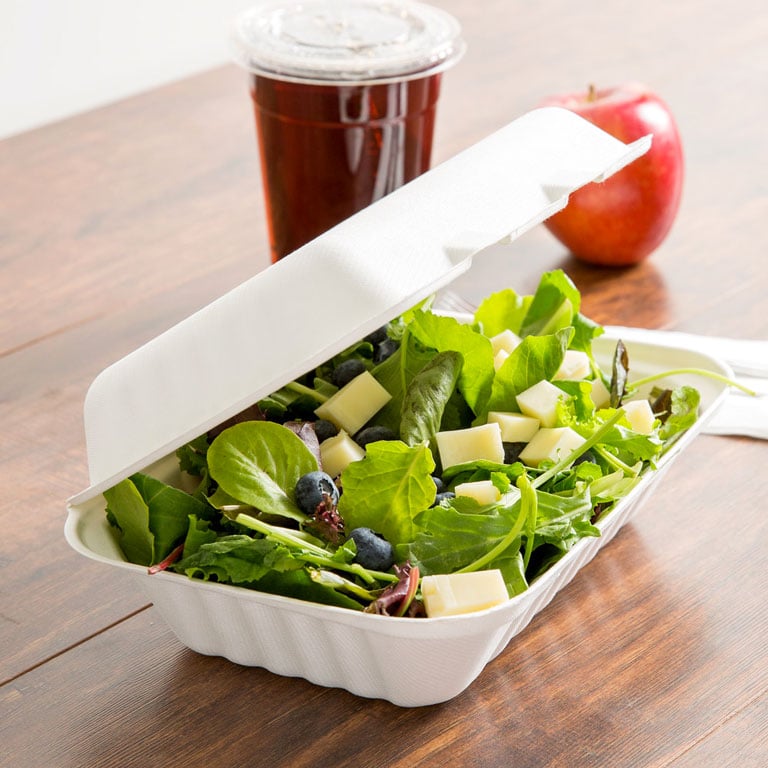What Materials Can Your Restaurant Recycle?

Before you begin your restaurant’s recycling program, find out what materials your current waste management provider recycles and how they need to be separated. Once you figure out what can be recycled, talk to both your front- and back-of-house staff so they understand how to properly dispose of recyclables. Also, be sure to emphasize to your employees the importance of rinsing out containers before tossing them in their respective bins. Any food particles left behind on recycled items can contaminate and ruin the recycling batch, so it’s best to have them cleaned up before they’re collected.
Most accepted recyclables are made of aluminum, steel, paper, and cardboard. Plastic products, like bottles, jars, and jugs can also be recycled, but plastic bags and items made of Styrofoam aren’t often collected by recycling facilities since they can be difficult to recycle into new material. If your collector does not take aluminum or steel cans, investigate your local area for businesses that will buy them instead. While glass items can be recycled, it’s important to check if they should be sorted by color.
How to Recycle Food Waste

Restaurant food waste can be broken down into pre-consumer and post-consumer waste. Pre-consumer food waste includes anything thrown away before food is served to guests, like rotten food that wasn’t used, byproducts from the prep process, or the packaging your ingredients came in. Post-consumer food waste includes the food scraps guests leave behind. Before any steps are taken in recycling pre- and post-consumer waste, it’s important to run a food waste audit on your restaurant to pinpoint the type and volume of food being thrown out.
While food waste may not immediately seem harmful to the environment, decaying fruits and vegetables emit methane gas, which is a major greenhouse gas. This is especially alarming considering that 40% of all food in the United States goes uneaten. Instead of letting your restaurant’s food pile up in a landfill, consider one of the many ways that it can be recycled:
Recycling Pre-Consumer Food Waste
- Avoid ordering extra produce: Even if your supplier is offering a special where you can get more produce for a low price, don’t do it unless your restaurant actually needs it. This way you prevent excess produce from spoiling before it is ever used.
- Bulk order items with a stable shelf life: Ordering products that have a longer shelf life in high quantities requires less packaging, creating less waste.
- Use day of the week stickers: Place stickers on items after you buy or prepare them, so you know when they’re close to their expiration date. Also, rotate items nearing expiration to the front of the fridge so they’re used first.
- Make use of every part of your ingredients: Stalks of fruits and veggies are often considered useless and are thrown away. Instead of sending these components to the trash, use them for extra seasoning in soups and sauces or as a garnish on dishes. Many animal parts are also thrown away even though they can be used to make stock or dishes like porchetta and head cheese.
- Donate to a good cause: Should you still have too much product, look into donating the leftovers to a food bank or shelter.
Recycling Post-Consumer Food Waste
- Offer guests take-out containers: Did you know the average guest leaves behind about 17% of their meal? Instead of just throwing the scraps into the trash, give your guest a carry-out box, so they can take your tasty meals home to eat when they’re feeling less full. Make sure to order boxes that are appropriately sized, that way you can cut down on waste created from the containers.
- Start composting: This is an inventive recycling method that turns organic materials like egg shells and animal bones into nutrient-rich soil. To start composting, all you need is an aerated bin for your compostable materials and an area where the new soil can be protected from harsh weather. If you don’t have the space for your own compost, check with your current waste management provider to see if they offer any compost haul away services that you can add to your current plan.
Additional Eco-Friendly Steps

As mentioned above, it’s extremely difficult to recycle Styrofoam. Even after 500 years, Styrofoam boxes and cups that aren’t recycled will still be on our planet because the material can’t be broken down by light, which is key in the decomposition process. However, there are many other disposable container options that are eco-friendly and recyclable, such as biodegradable or compostable products. While these disposable products are a great alternative to other options, try slowly switching over to non-disposable servingware, such as plastic and melamine plates. Don’t forget to get guests involved with your recycling program by fitting a recycling station, bin, or can in your usual trash disposal area.
Whether you decide to use all or just one of these recycling program options, you’ll be putting a green foot forward in creating a cleaner environment. When it comes to waste in your restaurant, always remember the old saying: reduce, reuse, and recycle!
Source: Webstaurantstore.com